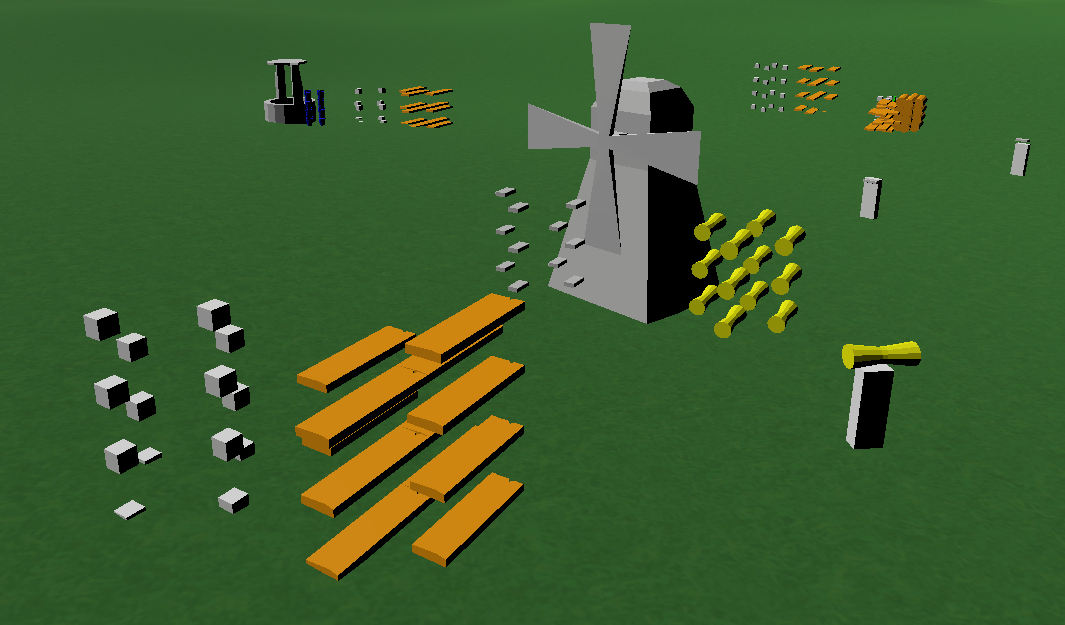"Having an idea for a game is easy, but making the game is hard" is a phrase that I have heard many times from other game developers.
I don't think that's entirely true. For me, I find the "having an idea" part is hard as well - or at least having a good idea is.
Making a game can take many years. I want to work on games that excite myself, and that keep me excited for all these years. We're working on our games as a team, so everyone else needs to be excited to work on it too!
Also, you need to eventually sell the game, so it should be something that gets players excited as well! To do that it probably helps to be something somewhat unique that stands out from other games, maybe with a cool art style or a unique setting or some clever gameplay ideas.
Oh and it also helps to somewhat predict what the market is like when your game finally releases. Maybe everyone is super into deck builder farming games with puzzle mechanics now, but what about in a few years?
So, that's all a bit overwhelming, but you need to start somewhere, and we do that by building prototypes.
A prototype is a small, fairly unpolished slice of what could eventually become a game that is supposed to give you some ideas about what does and doesn't work. We only want to invest as much time into them as necessary.
It could be for testing many things, like the gameplay loop, or a single game mechanic, or a technical detail.
Once Parkitect 1.0 was released we started working on a few different prototypes in parallel to working on the Parkitect DLCs and multiplayer update.
They aren't pretty, but I thought it would be interesting to take a look at them!
Here's the first one, and we'll show others in future posts.
Town Builder
I really love games with lots of tiny people running around and doing their thing in the environment you've created for them.
I also enjoy working on games that have lots of simulations and systems interacting with each other in some way.
So naturally it made sense to give another management simulation game a try, and I thought a town builder would be a good idea - I've always wanted to make one and had prototyped 2-3 different ones before. They never got very far, but maybe this time things would work out :P

There was no clear idea for what the game would be, other than a town builder - so there was no setting or theme or gameplay mechanics. The goal of the prototype would be to figure out what we like and dislike in a town building game, and hopefully along the way it'd give us some inspiration for answering all these other questions.
It was pretty much a very basic version of Settlers III, with stacks of resources, buildings that create and request resources, and people running all over the place transporting the resources around.
Obviously it would have been fleshed out eventually to turn into something more unique, but the goal for this was to figure out whether this alone is interesting and fun, and what the technical challenges would be.
To learn some more new things that we didn't already know from Parkitect, there was no grid in this prototype, buildings could be placed and rotated freely however you wanted, and we wanted to have a large, smooth terrain.
What we learned
- distributing resources between buildings in a way that makes sense is quite challenging because there's so many things to consider! You don't want workers to walk from one end of the world to the other just to deliver something. Ideally a resource should get picked up by a worker who is fairly nearby, and get delivered somewhere that isn't crazy far away. At the same time though this could cause some buildings to never receive resources, which feels wrong. Also, maybe some buildings are more important than others because they produce something essential, so probably there also needs to be some priorities for that?
- having a large, relatively complex area to pathfind across seemed challenging but there are already some good solutions for it that work well (i.e. Navmeshes)
- simply plopping down buildings everywhere if you have unlimited space and can place them freely however you want is not very interesting. It gives a lot of freedom in how you design your town but if you always have room to squeeze in a building pretty much wherever you want it feels like you don't have to put a lot of thought into placement